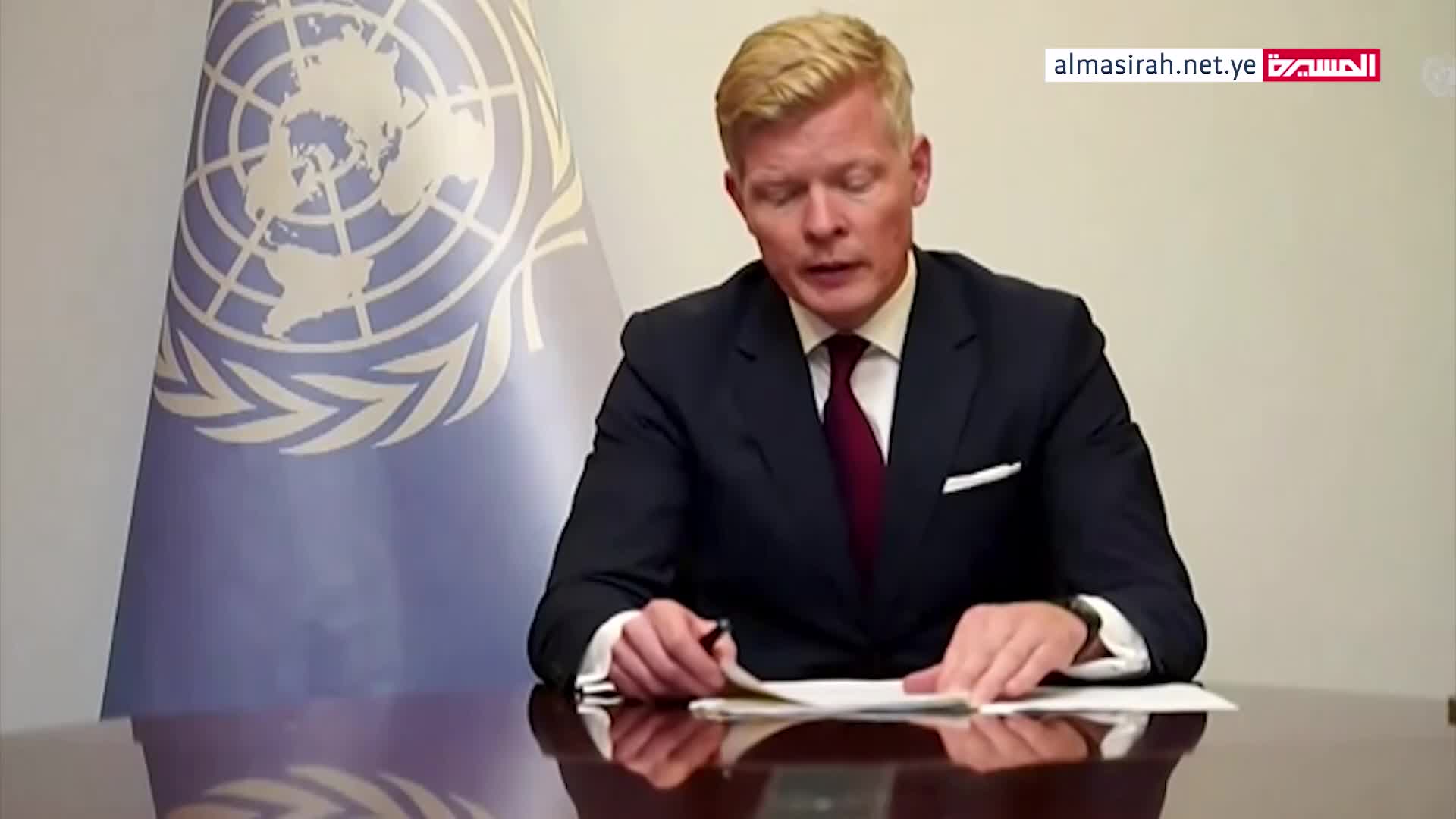In a recent briefing on Yemen, UN representative Hans Grundberg renewed accusations of the United Nations' complicity with the US-Saudi-Emirati agressive coalition, as they continue to bypass the demands of the Yemeni people and deprive them of their legitimate rights. This adds to a growing list of negative indicators that threaten peace efforts in the region.
During the latest Security Council session, Grundberg adhered to the narrative of the coalition's international sponsors regarding various details of the Yemeni situation. He highlighted the limited flights between Sana'a and Jordan as a significant achievement, ignoring that these restricted trips confirm the coalition's use of travel rights as a bargaining chip for political gains. This implies that the UN continues to encourage linking the humanitarian file to other issues.
Instead of demanding an end to the exploitation of the humanitarian situation, Grundberg equated the victim and the perpetrator in the suffering experienced by the Yemeni people, including the issue of unpaid salaries. He deliberately ignored the fact that these are legitimate entitlements of the Yemeni people, which the coalition and their mercenaries are responsible for. His stance aligns with the US position, which ties civil servant salaries to political issues.
The UN representative also adopted several other positions of the coalition and its Western sponsors, regarding the opening of roads and alleged restrictions on women. He brazenly condemned the military displays by the armed forces, calling them "provocations," while disregarding the ongoing violations, breaches, and crimes committed by the coalition and their mercenaries in various frontlines and regions.
Regarding the political solution, Grundberg insisted on excluding the coalition from the scene and presenting the mercenaries as the main party, reaffirming the UN's adoption of the coalition's approach. The conflict is portrayed as an internal struggle, allowing for evasion of actual peace commitments and the continuation of war and blockade behind local fronts with no real decision-making power.
In summary, the UN representative's briefing offered no new insights but reaffirmed the UN's long-standing negative stance on the Yemeni file. This implies a continued role as an international front for the coalition of aggression and a tool for legitimizing their positions and plans, confirming the lack of genuine intentions to achieve actual peace efforts.
This briefing serves as an additional negative indicator, highlighting the international sponsors of the aggression's persistence in manipulating the situation according to their views and ambitions. This approach encourages the coalition to remain stubborn and reject the demands of the Yemeni people, posing a clear threat to peace efforts.







